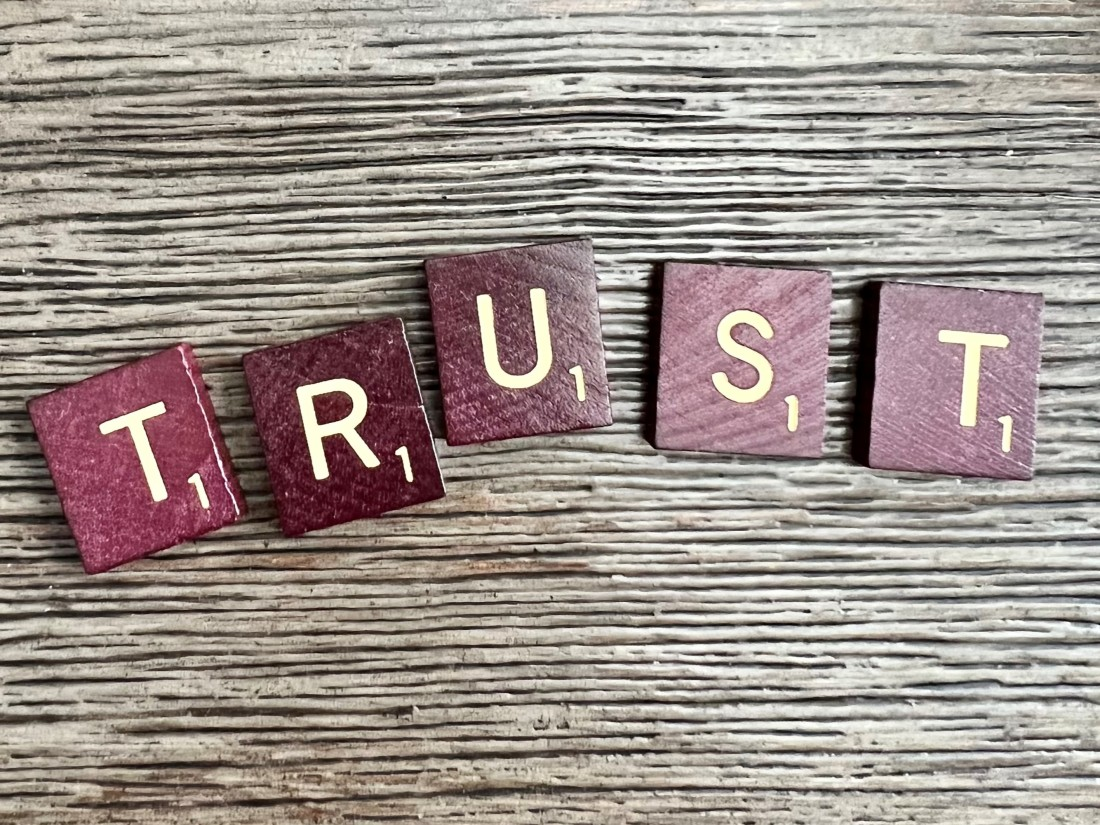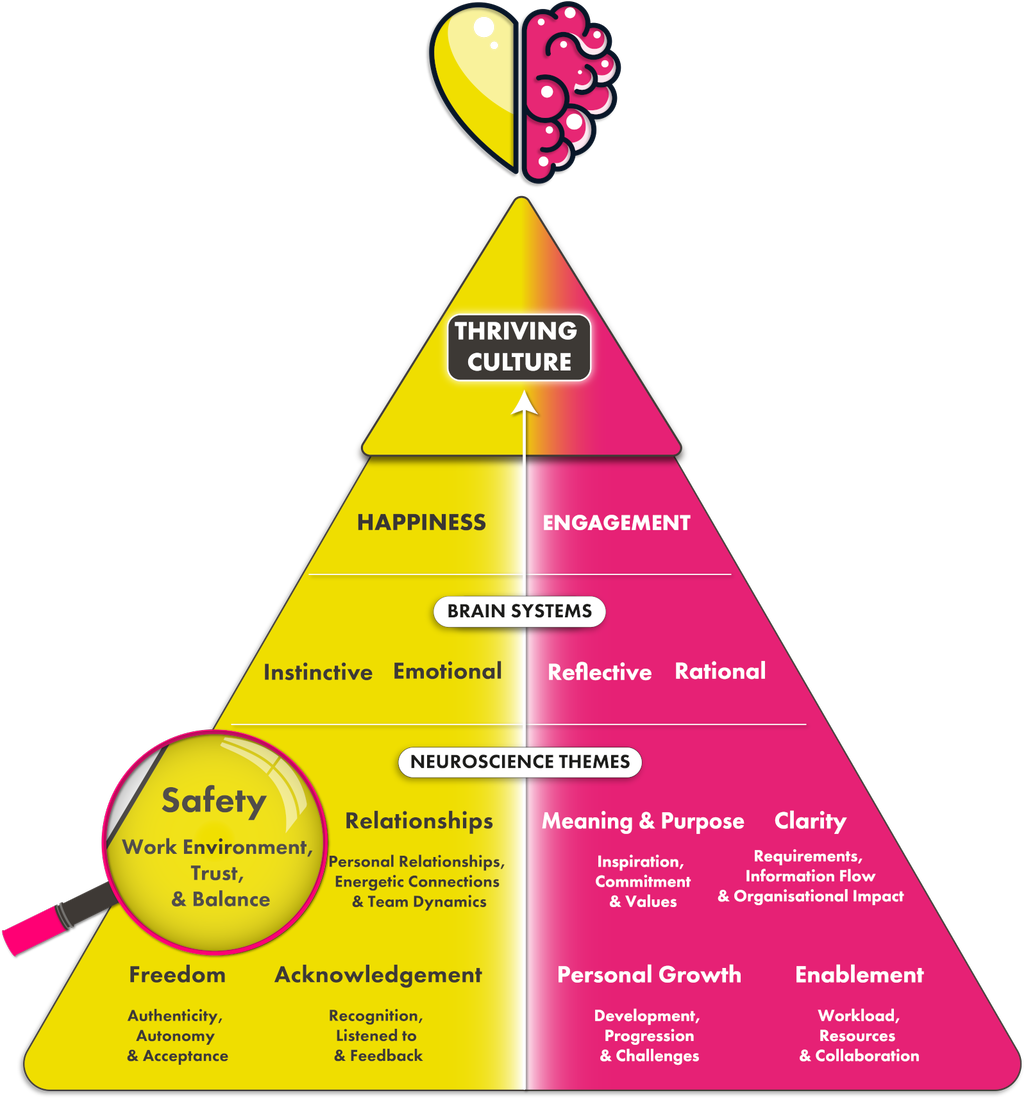Menu


Trust is a key component for feelings of psychological safety at work and helps keep us happy. This is linked to the Instinctive brain system in our neuroscience model.
If you’ve just landed on this page, we recommend reading our introduction to brain systems and the neuroscience themes for more context. Otherwise, read on for everything you need to know about why trust is so important for workplace happiness.

When building psychological safety in the workplace, we need to empower people to speak up and challenge policies, thoughts and behaviours. Encouraging them to show up authentically without fear of rejection, repercussions or humiliation is also vital.

The privilege of trust doesn’t take into account that others may have been harmed by a previous organisation. This can make them unable to trust from the get-go. Trust is therefore earned.
We all have an emotional bank account. Leaders, managers and HR professionals open trust accounts with their people, and they’re either in credit or debit. We can do things that build trust or things that erode trust. It’s important to keep some savings for a rainy day. When you think of it from that perspective, the pandemic was a rainy day when trust was needed by employers and organisations.
If people know how you’re going to show up, that you’re going to follow through and they can believe you’ll do something again and again consistently – that builds trust. If you’re straightforward and honest, speaking to people about the reasons for decisions strengthens and builds trust – even if the decisions might not be popular.
Building trust as a leader also means saying, “I don’t know the answer.” It can be incredibly powerful as well as strengthen bonds and trust – whether it’s on an individual level or companywide.
Even those who believe they are good at creating psychological safety and building relationships will struggle to connect on a deeper level with some people. In these cases, if you focus on trying to build a relationship, often they will share previous experiences that makes them hard to trust.
You must demonstrate reasons to trust because they can’t give 100% trust in the beginning. This is where the hard work needs to take place to show that you’re worthy of their trust, because other people in your position have harmed them.
At the heart of trust is relationships. Evaluate the strength of connections across the organisation. Do different teams work together often? Where are the silos that need to be broken down?
Employee engagement scores have dropped around the world, and there has become a more transactional relationship with work. Be intentional about fostering moments of connection across the organisation, where people experience each other as humans and not just as colleagues so that they feel seen and feel heard.
If you want to innovate, grow and tackle some of the challenges businesses face, you need to trust. How much disagreement is happening across the business and how many courageous conversations are happening about important issues? If there are questions happening, that’s a positive step towards the trust.
Fundamentally, connection is about having good relationships. Do you have friends in the workplace? Are there people you can talk to when you’ve had a bad day? Connection is about feeling seen. Do you feel seen and heard and can you show up authentically? Is someone taking the time to check in on you and have you been noticed?
If every business around the world fostered connection, it would go a long way to dealing with the challenges around mental health and inclusion. It’s so simple and doesn’t cost a thing.
We’re all messy as humans – we have emotions and flaws. If trust is high, then you acknowledge that sometimes you might have a bad day and mess up – and that’s okay. You’re not going to be instantly fired. We’re all humans so you can show up in all your messiness – or, as we like to say, bring your full self to work. Making mistakes is expected, being intentional while trying to correct it is important to maintain trust.
If you show vulnerability as a leader, it pays dividends. If you intentionally display the things that you’re getting wrong, it allows other people to step up. This allows people to own more things and help – which strengthens trust and develops their skills.
Leading is tough, lonely and exhausting at times. But it can be quite liberating to know that your error may have helped someone else grow. Admitting you don’t know, you need help or you got something wrong is one of the most powerful things a leader can do.
*This is an excerpt from the Happiness and Humans Podcast with Phil Burgess, former Chief People Officer at C Space and currently co-founder of Within.
Related articles
Get in touch for a platform tour and a chat with one of our experts to see how we can help you.
Use our ROI calculator to discover how much we can improve your business performance.